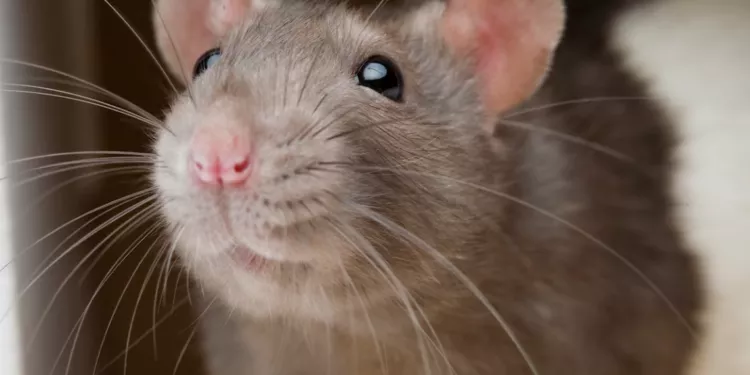________
Source: The Daily Skeptic
Lancet Pushes Dangerous Theory That People Are Worth No More Than Rats
By Dr. David Bell | March 17, 2023
There are various degrees of acceptable insanity, but in general you would not want a person who thought a toad had the same intrinsic value as your mother to manage her Alzheimer's disease. You would not want a person who equated the value of your daughter with that of a rat to decide whether she be injected with medicine still under trial, such as an mRNA vaccine. Or perhaps you would, as you may agree with the Lancet editorial in January 2023 that equates these, insisting: "All life is equal, and of equal concern."
Whatever value system you apply to other humans, it is important to understand that international public health is currently dominated by such rhetoric, if not such thinking. This will greatly influence society and your health for the next few decades.
The Lancet is one of the most influential international medical journals. The above passage is not taken out of context. The editorial recommends we change the way society is managed:
Taking a fundamentally different approach to the natural world, one in which we are as concerned about the welfare of non-human animals and the environment as we are about humans.To understand where public health has gone during the past few years, and why the Covid response could happen, it is important to pick this short editorial apart. Why did health professionals recommend children be denied the right to play together, and coerce pregnant women to be injected with novel pharmaceuticals that pass to their foetus? The answer lies partly in the dogma that now dominates health institutions and the journals that claim to inform them.
The concept that human health is influenced by the environment is as old as society itself. The 'One Health' label was attached to this a couple of decades ago to encompass the benefits of approaching public health in a more ecologically holistic manner. Bovine tuberculosis will affect humans less if it is controlled more effectively in cattle. Human well-being will benefit if forest preservation maintains local rainfall and shade, improving crop and animal production. Few would disagree.
Many religious beliefs also hold nature in high regard. Jains and some Buddhist schools hold that humans should minimise harm to any animal, maintaining strict vegetarian diets and taking steps to avoid the killing even of earthworms. Judaism and related beliefs hold that all of nature is God’s work and while humans have sovereignty over animals, they also have an obligation to nurture the world that God created. These religions maintain a strictly hierarchical view.
The difference with current One Health dogma is that it goes beyond revering nature to considering humans to be just one of many equal creatures. One Health in 2023, as the Lancet explains, involves "a revolutionary shift in perspective". The Lancet's editors are calling, specifically, for animals to be considered on a par with humans, dispensing with the "purely anthropocentric" or hierarchical view held by other nature-revering religions.
This insistence on inter-species equity is where the current One Health argument begins to come unstuck. Preserving an ecosystem (good) requires the infliction of staggering pain and suffering on many of its inhabitants by other, predatory animals (terrible for the victims). You cannot have it both ways. So, if you want animals to be treated like humans, either separate the animals from their natural predators, or leave humans also to the harsh cruelty of nature.
The Lancet opens by calling on indigenous peoples' care for land to stand as an example. It then advocates that we do away with indigenous meat-dominated diets, quoting its EAT-Lancet Commission that it
…takes an equitable approach by recommending people move away from an animal-based diet to a plant-based one, which not only benefits human health, but also animal health and wellbeing.The 'welfare' of animals, in the Lancet's opinion, is better served by the cut and thrust of the savannah, where bovids are disemboweled alive by carnivores. This naïve view of indigenous people and nature smacks of the cultural paternalism of the Victorian romantics. Many indigenous peoples, together with species ranging from weasels to jaguars, will be hoping they take their equity elsewhere.
Being "as concerned about the welfare of non-human animals" as one is about humans (‘ecological equity' in the Lancet's parlance) is a dangerous position to hold. Equity means all animals and humans should have equal rights or outcomes. Consistent with this, management of a highway triage event would have to weigh a severely injured goat (or rabbit) against a severely injured human, and not discriminate based on species. If the goat is more likely to respond to emergency measures, then save it and leave the unfortunate human to his or her fate. While the Lancet's editorial team may hold this view, most people would recognise this as a degradation of humans. One Health, however, extends far beyond the Lancet, and is being woven into the proposed pandemic agreements by which the World Health Organisation and others hope to increase control of global public health.
Please go to The Daily Skeptic to continue reading.
_________
Here's another one we can chalk up to the British. Like they say in Russia, Harry, eat sh*t - blood too. The Russians and pretty much most of the thinking world have had enough of the British. Red font for blood...the Afghanis gunned down from a helicopter must have looked like rats...

No comments:
Post a Comment
Note: Only a member of this blog may post a comment.